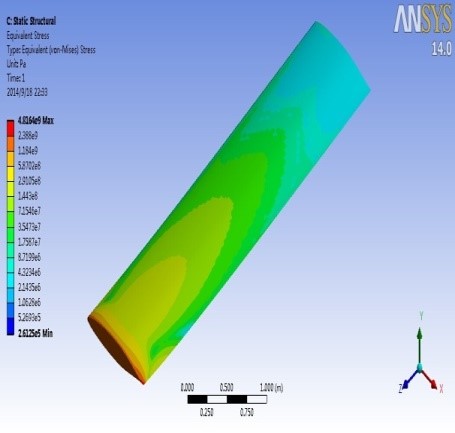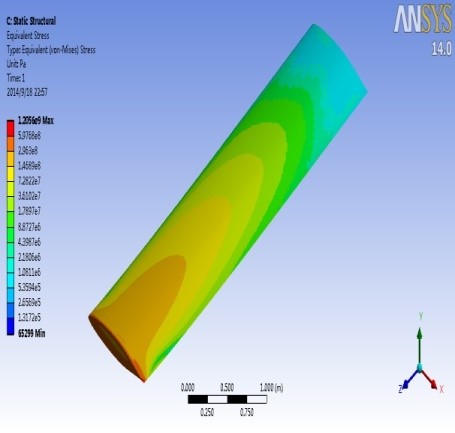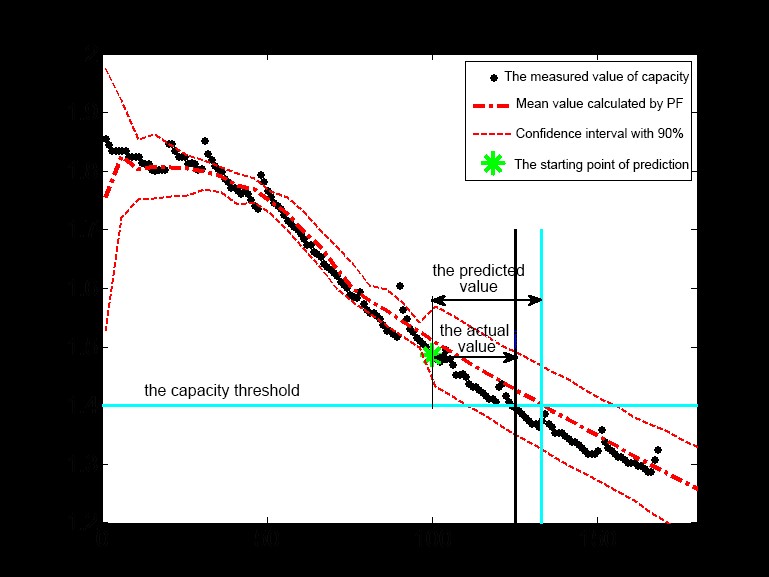Researchers
Position:Home首页 > Scientific Research > Researchers

Professor Li-Jun Zhang
Keywords:Material damage identification; Reliability design and risk assessment; Big data analysis; Artificial intelligence
Contact:ljzhang@ustb.edu.cn
Researches
Dr. Lijun Zhang is a professor at University of Science and Technology Beijing (USTB), China. He is currently the director of the Engineering Technology Department of National Center for Material Service Safety (NCMS), USTB. He was graduated from USTB in 2007 with a Ph.D. degree in mechatronic engineering. From May 2007 to present, he worked in NCMS, and served as the project manager of the Collaborative Support and Safety Evaluation System of Materials Service Safety Assessment Facilities (MSAF). He mainly engaged in research work on material damage identification, reliability design and risk assessment, big data analysis and artificial intelligence. He has been responsible for one National Natural Science Foundation project, one national R&D sub-project and five provincial and ministerial-level scientific research projects. In the past five years, he has published nearly twenty SCI/EI papers, published two monographs, and applied for four patents. In 2014, he was selected as the Beijing Excellent Talents Training Program.
l Main Projects
- Project 1: “Research on Service State Detection and Service Safety Evaluation of Typical Engineering Structure Materials, Fundamental Research Funds for the Central Universities of China (FRF-BD-18-001A), 06/2015-05/2019 (PI)”
- Project 2: “Research on life prognostics and health management for equipments based on uncertainty analysis methods, Fundamental Research Funds for the Central Universities of China (FRF-TP-15-010A3), 10/2015-09/2016 (PI)”
- Project 3: “Research on health assessment and life prediction for Lithium-ion battery based on fusion methods, Fundamental Research Funds for the Central Universities of China (FRF-TP-14-061A2), 09/2014-08/2015 (PI)”
- Project 4: “Research on safety assessment of structural damage for transmission tower based on process information fusion theory, Beijing Municipal Organization Department Foundation for Excellent Talents of China (2013D009006000003), 01/2014-12/2015 (PI)”
- Project 5: “Research on safety assessment methods to large rotating sets based on information fusion, National Natural Science Foundation of China (51005015), 01/2011-12/2013 (PI)”
- Project 6: “Research on reliability assessment for transmission tower structure based on data modeling theory, Fundamental Research Funds for the Central Universities of China (FRF-TP-12-161A), 01/2012-12/2013 (PI)”
l Main Contributions
- Multi-source sensor information fusion framework for rolling bearings and engineering structures: uncertainty analysis method for mechanical equipment based on function principal component analysis, rolling bearing fault identification technology based on information fusion method, bearing life prediction method based on image fusion, transmission tower structure damage identification and residual life prediction method. The proposed principal component-based analysis method has been successfully applied to rolling bearings and engineering structures. Some research results have been published in journals such as Quality and Reliability Engineering International, Entropy, and Journal of Mechanical Engineering.

- High-speed fluid-solid coupling and transformer simulation analysis technology for aircraft structure: sound signal measurement and analysis methods in high temperature environment, sound field simulation analysis method for material structure under high flow rate environment, aerodynamic acoustic simulation analysis and acoustic fatigue life prediction of airfoil structures at high velocity, signal processing method for transformers based on vibration simulation analysis. The proposed fluid-structure coupling analysis model in high-speed environment has been applied to the principle design of a structure in high-temperature environment. Some research results have been published in Sensors and other journals.


- Quantitative evaluation system for residual lifetime prediction of Lithium-ion batteries and machinery equipments: SOC estimation method for Lithium-ion batteries based on complex service conditions, health state estimation and residual life prediction of Lithium-ion batteries, degradation model and dynamic simulation of service performance of deep groove ball bearings, early warning assessment and maintenance optimization of rotating machinery equipments. The proposed life prediction index for lithium batteries under complex operating conditions has been successfully applied to state assessment and life prediction of lithium batteries for electric vehicles. The proposed early warning index based on kurtosis index and fuzzy C-means method has been successfully applied to a cold rolling mill (7 days before warning). Some research results have been published in the journals of IEEE Access, Applied Science, Algorithms and Journal of Engineering Science.

……
l Publications
1. Lijun Zhang*, Zhongqiang Mu, Changyan Sun. Remaining useful life prediction for lithium-ion batteries based on exponential model and particle filter. IEEE Access, 2018, 6(1): 17729-17740.
2. Lijun Zhang*, Coupling analysis and performance study of commercial 18650 lithium-ion batteries under conditions of temperature and vibration. Energies, 2018, 11(10), 2856.
3. Zachary Bosire Omariba, Lijun Zhang*, Dongbai Sun. Review on health management system for lithium-ion batteries of electric vehicles. Electronics, 2018, 7(5): 72.
4. Lijun Zhang*, Kai Liu, Yufeng Wang, Zachary Bosire Omariba. Ice detection model of wind turbine blades based on random forest classifier, Energies, 2018, 11(10): 2548.
5. Lijun Zhang*, Changyan Sun. Simulation analysis of fluid-structure interaction of high velocity environment influence on aircraft wing materials under different Mach numbers. Sensors, 2018, 18(4): 1248.
6. Lijun Zhang*, Zhansheng Ning, Hui Peng, Zhongqiang Mu, Changyan Sun. Effects of vibration on the electrical performance of lithium-ion cells based on mathematical statistics. Applied Science, 2017, 7(8): 802.
7. Lijun Zhang*, Hui Peng, Zhansheng Ning, Zhongqiang Mu, Changyan Sun. Comparative research on RC equivalent circuit models for lithium-ion batteries of electric vehicles, Applied Science, 2017, 7(10), 1002.
8. Bin Zhang, Lijun Zhang*, Jinwu Xu. Degradation feature selection for remaining useful life prediction of rolling element bearing. Quality and Reliability Engineering International, 2016, 32(2): 547-554
9. Bin Zhang, Lijun Zhang*, Jinwu Xu, Pingfeng Wang. Performance degradation of rolling element bearings based on an index combing SVD and information exergy, Entropy, 2014, 16(10): 5400-5415
10. Lijun Zhang, Jinwu Xu, Jianhong Yang, Debin Yang, Dadong Wang. Multiscale morphology analysis and its application to fault diagnosis. Mechanical Systems and Signal Processing, 2008, 22(3): 597-610
l Books
1. Bin Yang, Lijun Zhang, Yun Guo, Hongbo Li, Qiaoqiao Lu. Field practical technology for diagnosis of electrical equipments. Beijing: Mechanical Industry Press, 2012 (ISBN: 978-7-11-37159-5)
l Patents
1. Lijun Zhang, Hongliang Huang, Bing Zhang, Hui Peng. A wireless sensor network device integrating multiple types of sensors, 2016.04.20-2025.09.02, China, CN201520679428.3
l Awards and Membership
1. Deputy-secretary general of the Field Committee of Material Service Safety, Chinese Society for Testing and Materials (CSTM)
2. Committee Member of Equipment and Maintenance Engineering Subcommittee, Chinese Mechanical Engineering Society (CMES)
3. Committee Member of Fault Diagnosis Committee, Chinese Society for Vibration Engineering (CSVE)
4. Reviewer for the National Natural Science Foundation of China (NSFC)
5. Reviewer for the degree and postgraduate education evaluation of Ministry of Education of China
6. Reviewers for TOP journals such as Renewable & Sustainable Energy Reviews, Applied Energy, IEEE Transaction on Industrial Electronics, Journal of Power Sources, Mechanical Systems and Signal Processing
